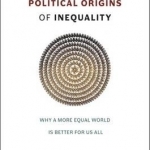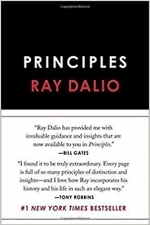
Leading Across New Borders: How to Succeed as the Center Shifts
Ernest Gundling, Christie Caldwell and Karen Cvitkovich
Book
An insightful, real-world look at the skills today's global leadership demands Leading Across...

Confessions of the Pricing Man: How Price Affects Everything: 2015
Book
The world's foremost expert on pricing strategy shows how this mysterious process works and how to...
Behavioral and Social Science in Medicine: Principles and Practice of Biopsychosocial Care: 2017
Book
Behavioral and Social Science in Medicine: Principles and Practice of Biopsychosocial Care provides...

The Political Origins of Inequality: Why a More Equal World is Better for Us All
Book
Inequality is the defining issue of our time. But it is not just a problem for the rich world. It is...

Climate Change and Society: Sociological Perspectives
Riley E. Dunlap and Robert J. Brulle
Book
Climate change is one of the most critical issues of the twenty-first century, presenting a major...

Bloomberg Businessweek+
News and Magazines & Newspapers
App
Download the Bloomberg Businessweek app to access new, must-read content every day. Customized by...

Principles: Life and Work
Book
“Significant...The book is both instructive and surprisingly moving.” —The New York Times ...
business finance
Gareth von Kallenbach (980 KP) rated Moneyball (2011) in Movies
Aug 7, 2019
Naturally, this has put many teams at a competitive disadvantage and most feel that they have no chance to win long-term, even as they develop cheap homegrown talent in their minor-league systems. They lose said talent to the larger market clubs once players become eligible for free agency. It is against this backdrop that the new film “Moneyball” starring Brad Pitt is set.
The film was based on the book of the same name which tells the story and philosophy of Oakland A’s general manager Billy Beane. Beane was a highly recruited baseball player at a high school who turned down a scholarship to Stanford for his shot at the major leagues. Unfortunately for Beane, his career was a major disappointment punctuated with numerous stops between the pros and the minor leagues which resulted in a very mediocre and forgettable career.
Beane got himself a job as a scout and in time worked his way to being the general manager of the Oakland A’s. As the film opens, Oakland has just lost a deciding Game 5 the New York Yankees, whose payroll at the time was almost $120 million greater than Oaklands. Adding further insult to injury, Oakland is unable to re-sign its three biggest stars as they accept large contracts with the Yankees, Red Sox, and other large market teams.
Unable to get any additional funds from his owner, Beane travels to Cleveland in an attempt to find affordable talent via trades. Beane is categorically rebuffed and told that he couldn’t afford many of the players that he’s asking about and that the ones he can afford are not be available to him.
Beane notices a young man, Peter Brand (Jonah Hill) during the negotiations, whose quiet input was heeded by the Indians, even though this is Peter’s first job since graduating from Yale with an economics degree. Beane gets Peter to confide in him about his beliefs that the traditional baseball method for evaluating talent is all wrong and that there is a better way to do it.
Intrigued, Beane hires Brand to be his assistant general manager and the two set out to rebuild the Oakland A’s on a budget. Needless to say this does not sit well with many of the talent scouts or manager Art Howe (a very believable Phillip Seymour Hoffman), who sees the recruiting of washed-up has-beens and never-weres by Beane as misguided and ridiculous.
But Beane and Brand are determined, and using statistical formula that looks at such things as on-base percentages and runs scored as opposed to batting average, home runs, and RBIs, the A’s quickly put together an unlikely team. It doesn’t immediately play out well for the hopeful general manager because Howe is unwilling to play many of the new players that have been brought on. Oakland quickly sinks to the bottom of the league, and many begin to question the sanity of Bean’s approach, to the point that even his young daughter worries that his days as a general manager are numbered.
The film does a good job at showing the inner workings of baseball and Pitt does an amazing job showing the complex nature of Beane. He is a single father dealing with the failure of his playing career, and his inability to get Oakland to be a consistant winner. He puts everything he has into this so-called outrageous scheme and is willing to see it through no matter the cost. Chris Pratt does great supporting work as Scott Hatteberg, one of Beane’s reclamation projects as does Stephen Bisop as aging major-league slugger David Justice.
The film stays very true to historical events and shows the characters as they are, flaws and all. While a true story, Peter Brand, is a fictional charcter based on Paul DePodesta who introduced Beane to the analytical principles of sabermetrics. The movie remains a very interesting character study as well as an examination of the delicate relationships between players, front offices, and ownership where wins and dollars are paramount even when many teams are struggling to make do with less.
That being said the film was a very enjoyable and realistic look at the inner workings of baseball that should not be missed.

Lingvo Live Dictionary
Education and Reference
App
Lingvo Live is a service for all who seriously study foreign languages. It is a collection of top...


